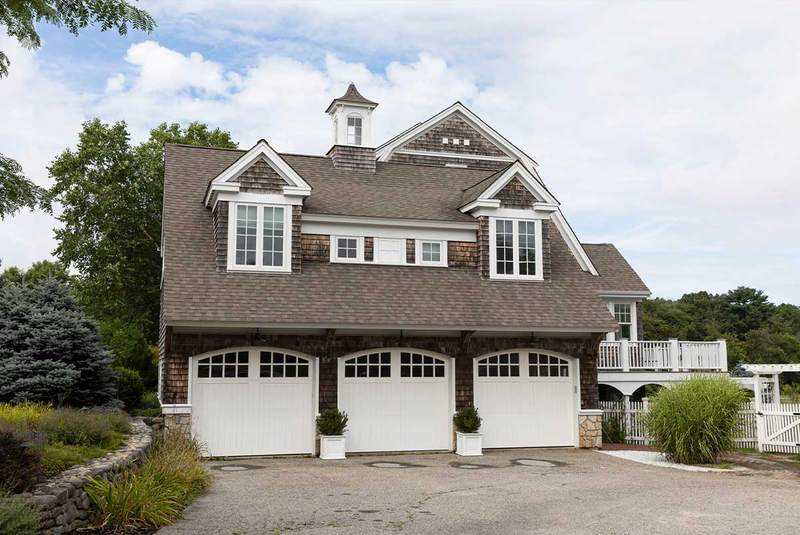Eliminating your monthly mortgage payment could create a significant amount of breathing room for most homeowners. If you’re interested in paying off your mortgage early, it might be a goal worth pursuing for your financial situation. We will explore how to decide if paying off your mortgage early is the right move for you, as well as common strategies you can use to reach this goal.
Key Takeaways:
- It is possible to pay off your mortgage with one lump-sum payment, but first, you’ll need to ask for a payoff letter from your lender.
- Other options to pay off your mortgage include rounding up the dollar amount for each payment, making an extra payment each year or dedicating any additional funds toward the principal of the loan.
- Before making any additional payments, speak with the lender to clarify how best to allocate them to the principal.
Can You Pay Off Your Mortgage Early?
Not only is it possible to pay off your mortgage early, but this decision could transform your financial situation and potentially save thousands of dollars in mortgage interest. In some cases, you could even refinance from a 30-year mortgage to a 15-year loan term, further lowering your interest rate.
As a homeowner, you have two options for paying off your mortgage early. You can either make a larger one-time payment to settle your mortgage balance or make extra payments toward the principal of your mortgage loan to pay it off sooner.
For example, let’s say you pay an extra $300 per month toward your mortgage balance of $200,000 with a 6% interest rate, and 15 years left in your loan term. In this case, you would pay off your mortgage almost 3.5 years ahead of schedule and save over $25,000 in interest payments. Remember that some mortgages have a prepayment penalty, so always check your loan agreement or ask your lender directly for more information.
Compare Refinance Offers From Verified Lenders:
Should You Pay Off Your Mortgage Early?
Whether it’s best to pay off a mortgage early depends entirely on the homeowner and their unique financial situation. Of course, there are great benefits in the long run, the biggest being no longer having a mortgage and enjoying significant home equity.
But if you’re going to be strapped for cash by making extra payments or stall your progress toward other important financial goals, then an early mortgage payoff may not be right for you. For example, if you have unsecured debt with a higher interest rate, it might be more efficient for your finances to pay off other debts before paying off your mortgage. If you have a low interest rate locked in for your mortgage, investing in assets with the potential for a higher return could make more sense. For example, stopping contributions to your retirement accounts to pay off your mortgage early could backfire in the long term.
Pros and Cons of An Early Payoff
To simplify things, let’s look at some of the key advantages and disadvantages of paying off your mortgage early. Some of these are obvious, while others just depend on personal preference.
Notable advantages of paying off your mortgage early:
- The peace of mind that comes from no longer having a monthly mortgage payment
- Increasing your equity in an asset that may appreciate over time
- Freeing up funds that were previously dedicated to your mortgage payments, allowing for a degree of financial freedom
- Reducing the overall amount of interest you’ll pay on the home loan
Paying off your mortgage early does have some downsides, including:
- Neglecting other high-interest debt, such as credit card debt or private student loans
- The opportunity cost of not investing your extra income into other assets, such as stocks, bonds or retirement funds
- The risk of depleting your emergency savings fund in the event that you experience financial distress later on
Ultimately, whether or not to pay off your mortgage early comes down to your financial priorities, risk tolerance and long-term goals.
What’s Your Goal?
Buy A Home
Discover mortgage options that fit your unique financial needs.

Refinance
Refinance your mortgage to have more money for what matters.
Tap Into Equity
Use your home’s equity and unlock cash to achieve your goals.
Paying Off Your Mortgage Early With A One-Time Payment
If you decide that paying off your mortgage early is the right move for your finances, and have the funds available, follow the steps below to pay off your mortgage:
1. Request A Payoff Letter
Once you’re ready, contact your lender to let them know you want to pay off the remaining balance of your mortgage. In some cases, the payoff will involve extra fees. But you’ll be able to see all of the details in a payoff letter.
Make sure you request the payoff letter only when you’re ready. Additional payoff letter requests may incur extra fees.
2. Pay Off The Mortgage Balance
After you have the payoff letter, you can send the final payment to your mortgage lender. Before sending over the funds, ask the mortgage lender how they want to receive them. Depending on your situation, you might choose to transfer or wire the funds.
It’s a good idea to track the payment to ensure it goes through.
3. File A Discharge Of Mortgage Letter
After you’ve paid off the mortgage, you’ll likely need to file a discharge of mortgage letter with your local government. The records office needs this paperwork to release the deed to your home. In most situations, this process is typically handled by the lender.
4. Manage Recurring And Ongoing Payments
The mortgage payments associated with your home loan represent a significant portion of your homeownership costs. However, paying off your mortgage doesn’t eliminate all of your homeownership-related expenses. As a homeowner, you’ll still be responsible for homeowners insurance, property tax payments and any homeowners association (HOA) fees. If you’ve been paying for these recurring payments through an escrow account, this will no longer be the case once your mortgage is paid off. In some cases, you’ll receive a refund from your escrow account.
Ready To Refinance?
Get matched with a lender that can help you reach your financial goals.
Paying Off Your Mortgage Early With Long-Term Strategies
Making a lump-sum payment isn’t an option for every homeowner who wants to eliminate their mortgage. Luckily, you can pursue other strategies to pay off your mortgage early!
Make A Larger Down Payment
A larger down payment upfront can lead to a smaller home loan. If you’re able to put down at least 20%, you should be able to avoid private mortgage insurance, which adds to your homeownership costs.
One option is to save up for a bigger down payment. But it’s also worth researching down payment assistance (DPA) programs to help you make a bigger dent in your home loan. Just remember that not all lenders accept all DPA programs. It’s best to talk to your lender to determine what will be accepted.
Use A Mortgage Recast
A mortgage recast involves making a lump-sum payment toward the principal balance on your home loan. Through a recast, you can lower your monthly payments without changing the loan term or interest rate.
Remember to contact your lender first to ensure you are allocating any extra amount toward your principal. Not all loans are eligible for recasting, so it’s important to confirm that your mortgage servicer offers this option.
Pay Extra Over Time
Making extra payments toward your mortgage can also help pay it off faster. While some people choose to make additional payments on a consistent basis, others do so whenever they come into some extra cash, such as their tax refund. Another simple and effective option is to round up your mortgage payment to the nearest hundred dollars.
No matter when you decide to make an extra payment, tell your lender that the money is going toward your principal balance. If you fail to make this clear, your lender could assume you want to apply the funds to next month’s payment, and your money could end up being allocated incorrectly.
Make An Extra Annual Payment
An extra annual payment can make a big difference to your repayment timeline. For example, let’s say you have a 30-year home loan with a 6% interest rate for $200,000. If you make an extra annual payment of $1,000, you could save over $42,000 in interest payments and shave almost 5 years off of your loan term.
Make Biweekly Payments
Making smaller, biweekly payments, as opposed to traditional monthly payments, is another way to pay off your mortgage faster. With this method, you can cut months off your mortgage term and save thousands of dollars in interest because you’re effectively making one full, extra mortgage payment per year that gets applied directly to your principal balance. And, if you get paid biweekly, making payments biweekly may just make sense because you can schedule your payments around your paydays.
Refinance To A Shorter Mortgage Term
Refinancing your mortgage enables you to trade in your current loan for one with better terms, like a lower interest rate and/or shorter term length. Short-term loans usually come with lower interest, but if interest rates are lower than when you took out your original loan, you may be able to get a reduced rate regardless.
For example, let’s say you took out a 30-year home loan with a 6% interest rate for $200,000 5 years ago. At this point, you’ve decided to refinance the 30-year mortgage to a 15-year mortgage. If the interest rate stays at 6%, your monthly payment will go from $1,199 to $1,687. Although you’ll pay hundreds of dollars more each month, you’ll pay off your loan 10 years earlier.
View Your Refinancing Options
Find a refinance lender that will work with your unique financial situation.
Paying Off Your Mortgage Early: FAQs
You have questions about paying off your mortgage early. We have answers.
The Bottom Line
Paying off your mortgage early is a worthwhile option to consider. As for whether it’s better to pay off a mortgage or leave a small balance, this depends on a few factors. First, if you’re near retirement or desire the emotional and psychological relief of being debt-free, eliminating your monthly payments can lower your fixed costs and give a sense of security.
But if your mortgage has a low interest rate, or if your rate is lower than current investment returns, it doesn’t make as much sense to pay it off. In this case, you should max out your retirement and other investment contributions first.
Lastly, consider your liquid assets, or simply put, the amount of cash you have. Once you pay off your house, your money will be tied up in an illiquid asset. That means that you can’t assess any cash unless you refinance or sell your home.
Remember that paying off your mortgage early can be as simple as rounding up each payment to the nearest $100 and applying it to the principal. If you think refinancing to a shorter term could be right for your situation, learn more about refinancing today.

Ben Shapiro
Ben Shapiro is an award-winning financial analyst with nearly a decade of experience working in corporate finance in big banks, small-to-medium-size businesses, and mortgage finance. His expertise includes strategic application of macroeconomic analysis, financial data analysis, financial forecasting and strategic scenario planning. For the past four years, he has focused on the mortgage industry, applying economics to forecasting and strategic decision-making at Quicken Loans. Ben earned a bachelor’s degree in business with a minor in economics from California State University, Northridge, graduating cum laude and with honors. He also served as an officer in an allied military for five years, responsible for the welfare of 300 soldiers and eight direct reports before age 25.












